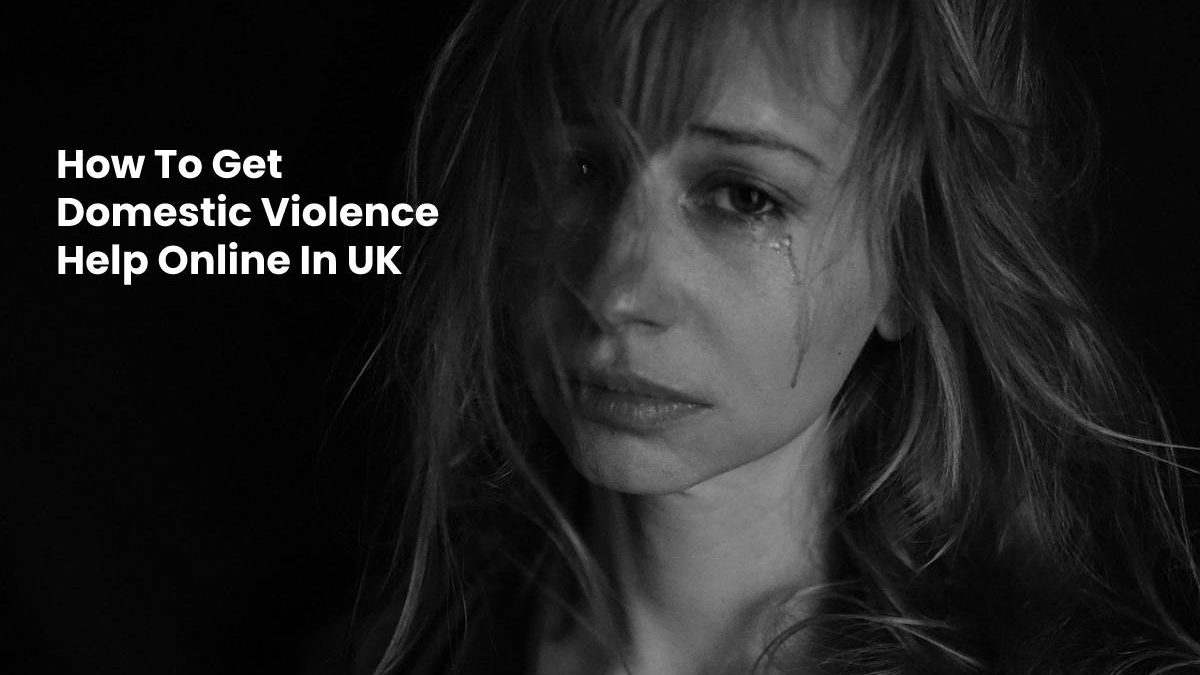Domestic Violence Help Online
Domestic violence includes all forms of physical, sexual, and/or psychological violence between people in a mostly domestic community.
It does not matter whether the people live in marriage, a registered partnership or just live together, what sexual orientation they have, or whether it is a community of several generations. What is important is that it is a relationship (that still exists, is in the process of dissolution, or has been dissolved for some time). The location of the action can also be outside the apartment, e.g. street, shop and workplace, but often the apartment itself is the scene of the crime.
Table of Contents
Domestic violence is hurtful, punishable and not a private matter
Domestic violence takes many forms. They range from subtle forms of violence through behaviours that ignore the needs and sensitivities of the victim/victim, humiliation, insults and intimidation, threats and psychological, physical and sexual abuse, deprivation of liberty to rape, or even attempted or accomplished killings. Get here domestic violence help.
Almost all forms of domestic violence represent acts that are legally threatened with punishment: domestic violence is not a criminal offense of its own. Numerous criminal offenses trigger ex officio police action in connection with domestic violence because domestic violence is never a private matter. It applies: “Everyone has the right to life and physical integrity. The freedom of the person is inviolable.” (Art. 2 Basic Law)
The special thing about domestic violence
Domestic violence affects all educational and income groups alike. It exists in all age groups, nationalities, religions, and cultures.
Domestic violence does not arise – such as B. in a bar brawl – out of a concrete situation. Rather, it is an expression of an ongoing relationship of power and dependency between the perpetrator and the victim.
Relationships in which violence is used are often subject to a dynamic of their own that follows a certain pattern. Typically, the situation calms down initially and the perpetrator apologizes, but then becomes more violent. The intervals between the individual outbreaks of violence may become shorter and the severity of the violence increases. Domestic violence is therefore not an isolated case. Studies for Germany and Europe show that around a quarter of all women in Germany become victims of domestic violence at some point in their lives.
Children are also affected by this violence if they get to know violence in their family as a pattern of conflict resolution, experience, or observe violence themselves. These children then often tend to become violent themselves later or become victims of partner violence. For this reason alone, domestic violence must be prevented or stopped immediately.
Every child has the right to a non-violent upbringing
Fathers and mothers want to be good parents to their children, give them attention, encourage and protect them. There are certainly arguments between parents, but children should experience that parent’s quarrel and tolerate each other again. In some families, an argument leads to violence. Most children who experience domestic violence are ashamed of their parents’ behaviour. It makes it difficult for them to confide in someone. Also, they are often under enormous pressure because they have to take on tasks that the victim is no longer up to. Children are overwhelmed with this.
If you interfere in the argument, you can endanger yourself.
Children feel guilty about what is happening at home. It must be made clear to them that they are not responsible for their parents’ behaviour. They are guided by what their parents set for them. When they experience violence, it becomes normal. You will learn that violence to assert your interests is “normal”. They don’t learn that there are positive behavioural alternatives in conflict situations. In adulthood, these children often repeat what they have experienced, namely the exercise or endurance of violence. Children, therefore, need qualified support in coping with their violent experiences. This is done e.g. B. through specialist advice in youth welfare offices, through educators in women’s shelters and / or special offers from trauma centres for children and adolescents.
Have you been victimized or threatened?
If there is an acute threat, dial 110! The police will do whatever it takes to protect you.
Report the crime to the police. You can file a criminal complaint with any police station.
A person you trust and / or a legal adviser can accompany you to submit a report.
If the police become aware of domestic violence (e.g. from calls from neighbours), they must initiate an investigation ex officio.
If you still cannot decide to call the police, contact someone you trust or seek advice, but act!
Contact a domestic violence counselling or intervention agency. The police in your area or the “Violence against women” helpline on 08000 116 016 will provide you with contact around the clock and in many languages.
Write down details of the incidents, such as the date, time, and what exactly happened.
See a doctor, tell them where the injuries originated, and have the injuries attested, e.g. B. take photographs to have documented them for evidence of possible criminal charges.
Women’s shelters also offer protection against threats and the employees can advise you on further steps.
If you are threatened or pressured, be sure to report it to the police. This is the only way the police can quickly take appropriate measures to protect you.
Referral
The police can take several measures to avert danger and prevent further acts of violence:
If violence has been used, the police can direct the perpetrator to the home and ban the return for several days if there is a risk of further violence. In some federal states, it can also issue a temporary ban on contact and proximity.
A violation of the eviction notice and the ban on return can be prosecuted with fine or with imprisonment. If the perpetrator tries to come to the apartment during the ban on returning, definitely inform the police.
The period of several days of the police eviction notice allows the victims to take advice in peace, to get help from a local aid facility, and to obtain civil protection.
Civil protection
The Violence Protection Act significantly strengthens the options for protecting victims of domestic violence and makes the perpetrators more accountable. It enables the family court to prohibit the perpetrator from entering the shared apartment in the long term. This is an important prerequisite to interrupt an escalation of violence in the family or relationship. Also, proximity violations and the prohibition of contacts (calls, messages via SMS, fax, e-mail, social networks) and other forms of harassment can be pronounhttps://www.compuhttps://www.computertechreviews.com/definition/network/ertechreviews.com/definition/network-protocol/ced against the violent partner. Also, the court can oblige the perpetrator to give the endangered person the shared apartment at least for a limited period (in principle for six months with the possibility of an extension of a further six months) – regardless of the question of who is the sole or co-owner or tenant of the apartment.
Apply for civil protection
You can contact the family court and request a protection order by presenting yourself there and / or with the assistance of a lawyer. The family judge can determine that the perpetrator must follow protective orders, for example:
Leaving the shared apartment long-term or permanently
Keep a certain distance from the victim or their children, or
To avoid any contact.
A violation of judicial protection orders is a criminal offense by Section 4 of the Protection against Violence Act and is punishable by imprisonment for up to one year or a fine. If the perpetrator disregards the protective orders, inform the police immediately! The court knows the protection order and can take further necessary measures to protect you.
Please note that the application for civil protection can be subject to a fee. You may be entitled to legal aid, please contact the court.
Right of access for children
If the offender has a right of access for a child together, the protection order can be restricted. If further violence threatens and the child’s well-being is endangered, the youth welfare office or a lawyer can ensure that the right of access is only exercised or suspended to a limited extent. Possible regulations are:
The handover in a protected room,
The accompanied or supervised handling or
The suspension of handling.
Rights and claims
It often makes sense to get advice from a lawyer. He represents your interests in court and may be present when you are examined by the court or the public prosecutor. However, the first consultation is usually subject to a charge. The WEISSER RING association offers victims of violence an advisory check for the first interview. In some cases, you can apply to have the court appoint your own “victim lawyer”. The victim advocate then represents your interests in criminal proceedings and court. If the court follows your request, the victim’s work is free of charge for you.
On request, they can act as “co-plaintiffs” in criminal proceedings. That extends your rights. Find out more about the matter of co- litigation.
You may also be entitled to psychosocial process support.
Anyone who has suffered health damage as a result of an act of violence can receive care by the Victims Compensation Act (OEG) (eg medical and medical treatment, help for professional rehabilitation, damaged pension). The care is only granted on request. The application is to be sent to the responsible pension office for the place of residence of the injured party. For more information, see Victim Compensation for Victim Rights. This form of compensation is not to be confused with compensation or compensation for pain and suffering.
Victim support organizations are at your side throughout the (criminal) proceedings and beyond and support you in all areas.
Help and support
Get professional help to get domestic violence help.
In addition to the police, who can be contacted at any time in acute violent situations via emergency?
Women’s advice centres, women’s shelters
Emergency calls for women
Intervention agencies for victims of domestic violence
Marriage and family advice centres
Equal opportunities for the district offices and municipalities
Legal applications of the courts
Legal advice centres
The film informs those affected about the extensive range of advice on the “Violence against Women” help phone.
Help for children
Children can get help and support if they have problems at home, at school, with friends or when they feel threatened:
Also, You can find more helpful resources at thewebscience.
Kamran Sharief
Related posts
Sidebar
Recent Posts
The Best Forex Brokers for Beginners
Since COVID-19 first popped up, interest in the forex market has increased dramatically. Knowing how to get involved with minimal…
Maximizing Success: The Symbiosis of Dedicated Software Development Teams and Product Design Services
The Symbiosis of Dedicated Software Development Teams and Product Design Services In the rapidly evolving landscape of technology, businesses aiming…



